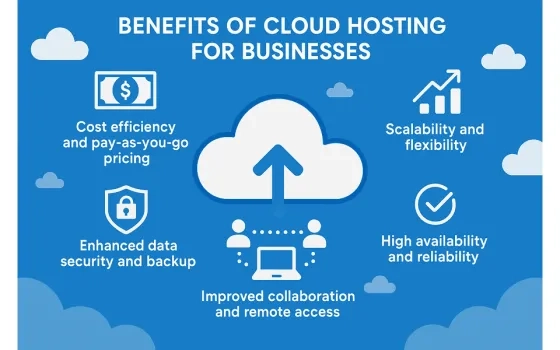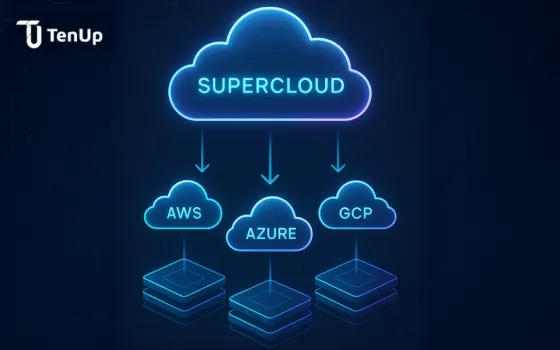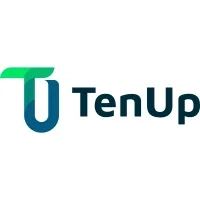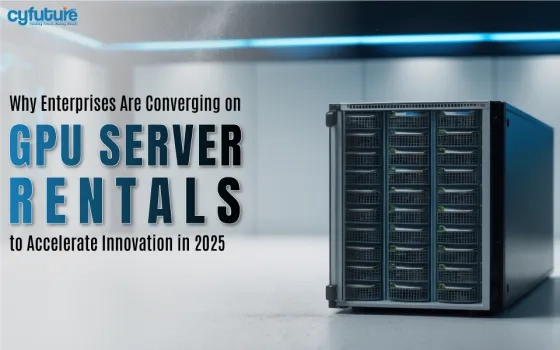In the age of the digital renaissance, data is looked at through the glass of indispensability. Data is the new capital organizations critically need to compete and grow. A Forrester report indicates that organizations shifting to a data-first mindset are growing more than 30% annually.
That said, the prescription for being an intelligent organization not only includes adopting data practices but also adapting to the changing dynamics in the field. Rapid technological changes and data-driven business models have led to ever-more sophisticated data analysis, and failing to comply with these advancements can cost an enterprise dearly.
As we move into the next decade, we look closely at six data trends seeing the light of day, and are likely to chart new growth pathways for the business ecosystem. So, let’s dive right in.
Data democratization
Data democratization is rapidly mainstreaming and unlocking business intelligence at the core of modern enterprises.
Gone are the days when data access was limited to specific people in teams. There is no way a couple of individuals can serve as an organization's eyes and ears in an era marked by rapid disruptions and market change.
Data democratization enables a scheme of things where all employees can access the data required to do their jobs up to par. This shift allows all employees to gain from data and contribute to more insightful, meaningful decisions at the scale of an enterprise.
Having said that, democratizing data doesn’t mean every employee will have access to every bit of information. In truth, it allows a window for every employee to access all levels of data that he needs to make day-to-day decisions and deliver tangible results. This may or may not exclude sensitive data.
With data democratization, organizations can reinforce decision-making, collaboration, transparency, and cost-effectiveness to ensure lasting value, empowered culture, and future readiness.
Data-as-a-service (DaaS)
Enterprises, irrespective of their size, understand that data is a critical driver of innovation. However, these enterprises may or may not have the proper foundation of technology to store, process, manage, analyze, and share data.
DaaS technology comes in handy for organizations that don’t want to raise a full-fledged infrastructure for data capture and storage.
DaaS providers save the day by curating and analyzing data from multiple sources, then packaging it up as a service for these enterprises to use. This data sits in the cloud and can be accessed, used, and shared on the internet.
One of the prime advantages of turning to DaaS is business agility. As data is available on demand, enterprises can quickly make mission-critical decisions and steer their businesses to profitability. A second advantage is the high quality of data. DaaS providers strive to collect the most up-to-date and accurate data for their subscribers, ensuring they achieve optimal business outcomes.
Cost-effectiveness is also a big plus point. Leveraging DaaS, enterprises leverage troves of high-quality data without having to invest in raising their own infrastructure. With less, they gain more.
Data governance
With pools of insights generated every passing hour of the day, it is essential to have a system in place to ensure streamlined data management. Data governance proposes a framework involving a set of principles and policies for effectively managing data while ensuring its integrity, veracity, compliance, and consistency.
Data governance is a growing discipline, and this growth can be attributed to three more reasons besides the exponential amounts of data generated daily.
- Cloud computing: The need for data governance is more palpable than ever because of cloud computing. Cloud computing provides organizations with many benefits, such as increased flexibility and scalability. However, it also introduces new challenges in data management and governance. Organizations need to be able to govern their data effectively to maximize the benefits of the cloud.
- Compliance: There is an increasing need for organizations to comply with various regulations. For example, the General Data Protection Regulation (GDPR) in the European Union requires organizations to take steps to protect the personal data of individuals. Compliance with these regulations can be complex without effective data governance in place.
- Monetization: Organizations increasingly recognize that data is a valuable asset and holds the moment of truth. By effectively governing their data, they can increase its value and monetize it in various ways.
According to a survey, the global data governance market is projected to grow at a CAGR of 22.3%, reaching USD 5.5 billion by 2025. If organizations rally ahead to build robust data governance, they can position themselves in line with several benefits, including enhanced decision-making, business resilience, and sustainable market growth.
DataOps
DataOps may not have mainstreamed yet; however, with a friendly boost from the popularity of DevOps, it is gaining massive traction across business quarters.
DataOps emphasizes establishing a culture of people, processes, and technology to enable secure, streamlined, automated, transparent, and agile data-driven pipelines at the scale of a business. In other words, it speaks about helping organizations manage data more effectively with a single-minded focus on leveraging value continuously from it.
Based on the principle that data should be treated as a first-class citizen in any business, DataOps helps organizations transform how data is used to unlock rapid insights, realize value faster, and enable confident decision-making. DevOps service providers have a handpicked team or department for managing data that collaborates and helps integrate data into a strategic roadmap aligned with business priorities.
DataOps has its roots in the field of DevOps, which is a set of practices designed to speed up software development. Many of the same principles that underpin DevOps are also key to DataOps, such as automation, collaboration, agility, and alignment.
Data clean rooms
Targeted advertising is thriving, with users increasingly sharing their data online and marketers gaining unprecedented insights from it. However, in the middle of everything, the trust factor continues to be evasive.
In the past couple of years, the use of ‘online surveillance’ has exponentially increased, resulting in advertisements that overstep and tremendous customer backlash. There is a solution to this problem in the concept of data clean rooms.
A data clean room is a piece of software that allows targeted marketing without breaching the blurry lines of privacy. Brands and advertisers can leverage a data clean room to run tailored advertising campaigns, apply frequency mapping, measure the impact, create assessments, and run attribution without being a part of what constitutes a privacy breach.
Data clean rooms provide a safe and secure environment for businesses to process and analyze data. They use various techniques to ensure that only the necessary data is used and that all data is anonymized and encrypted. This means that businesses can get the insights they need without compromising the privacy of their customers.
Using data clean rooms has many benefits that include:
- Improved campaign performance: By only using the necessary data, businesses improve the performance of their marketing campaigns.
- Frequency capping: Data clean rooms can help companies to avoid over-serving customers with too many ads.
- Better measurement and reporting: With data clean rooms, companies can get accurate insights into the performance of their campaigns.
AI for Metadata management
Unstructured data has become a massive pain point for organizations in recent years due to its sheer volume and capacity. According to some estimates, more than 80% of all data collected by organizations is unstructured, making it difficult to manage, analyze, and make sense of.
Having a metadata management solution in place can provide organizations with a competitive advantage by enabling them to effectively manage their data assets, improve the accuracy of their data, and streamline their data-driven decision-making processes. In addition, metadata management software can help organizations comply with data governance policies and regulations, further reducing their risk of data breaches and security incidents.
When combined with the disruptive potential of AI, organizations can have a field day, unlocking techniques to manage and organize data at scale automatically. There are a number of technologies under the umbrella of AI that can simplify:
- Extracting information from images (computer vision).
- Transcribing spoken words (speech-to-text and natural language processing (NLP))
- Identifying insights and patterns from written text (NLP)
- Generating spoken words from written text (text-to-speech and NLP))
- Allowing autonomous movement through spaces using sensory input (robotics).
- Picking up patterns in large data sets (machine learning).
The bottom line
Data is the bedrock of organizational success in an era of hyper-competition and constant disruptions. Being the new gold to organizations, it enables leaders to gain augmented visibility and avoid the pitfalls of decision-making based on outdated or inaccurate data. It also helps tap into employees' collective wisdom and build a culture rooted in agility, transparency, and accountability.
As with other technologies, innovation in the field of data is pushing frontiers and unlocking limitless possibilities. Those who adapt to the advancements in big data will be the next disruptors, not the disrupted.















